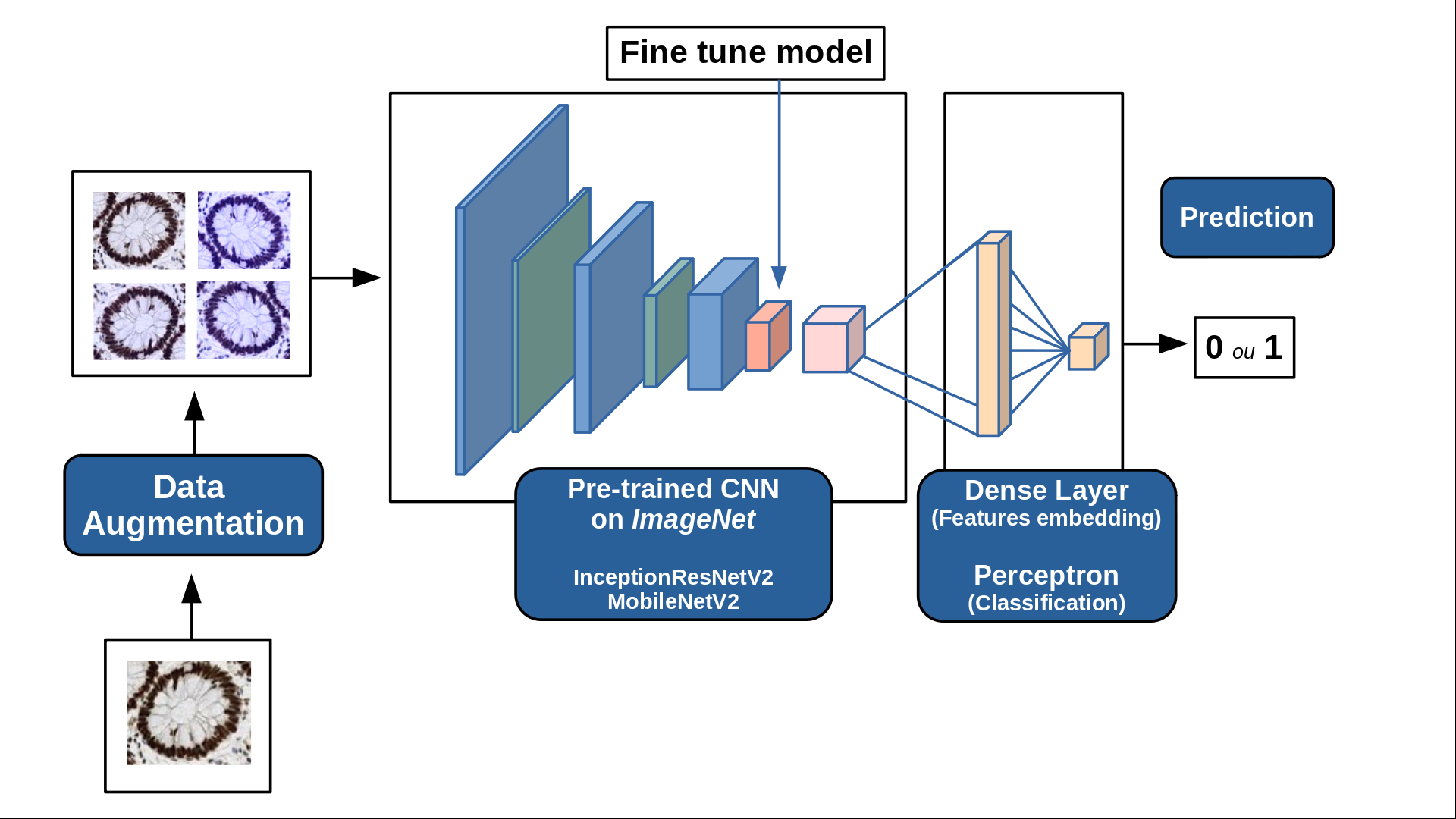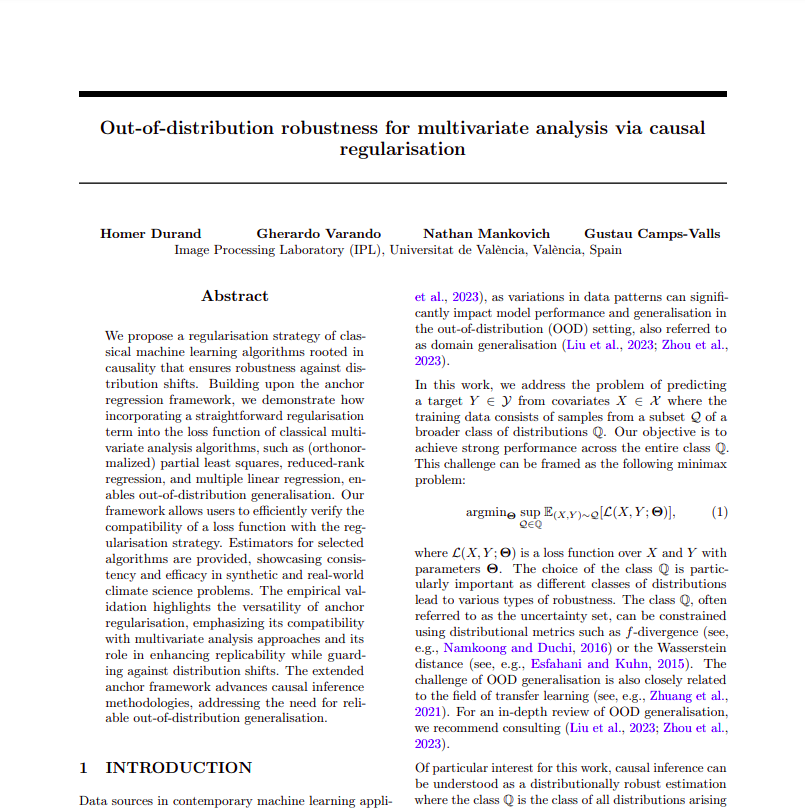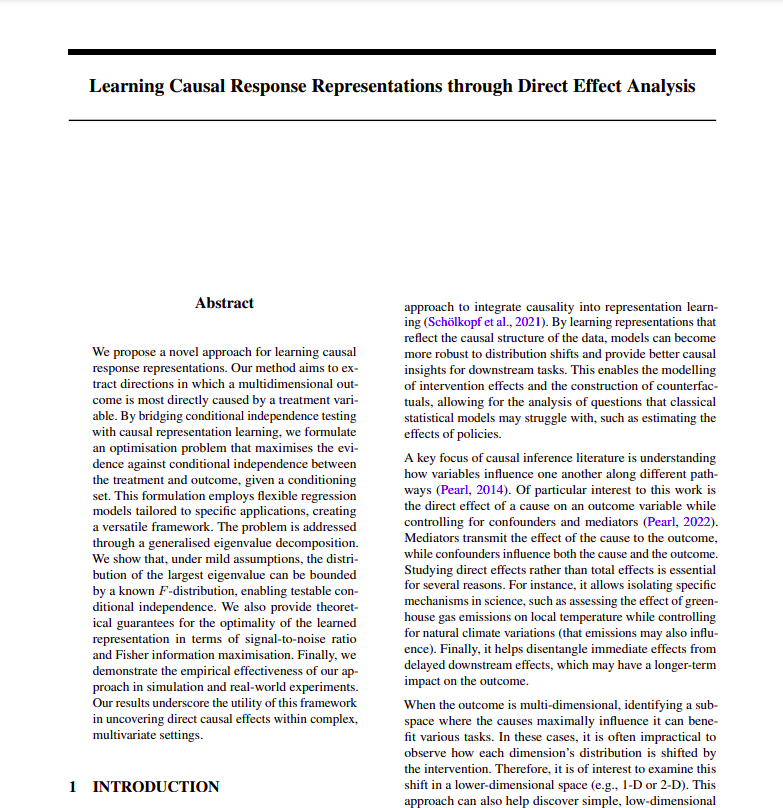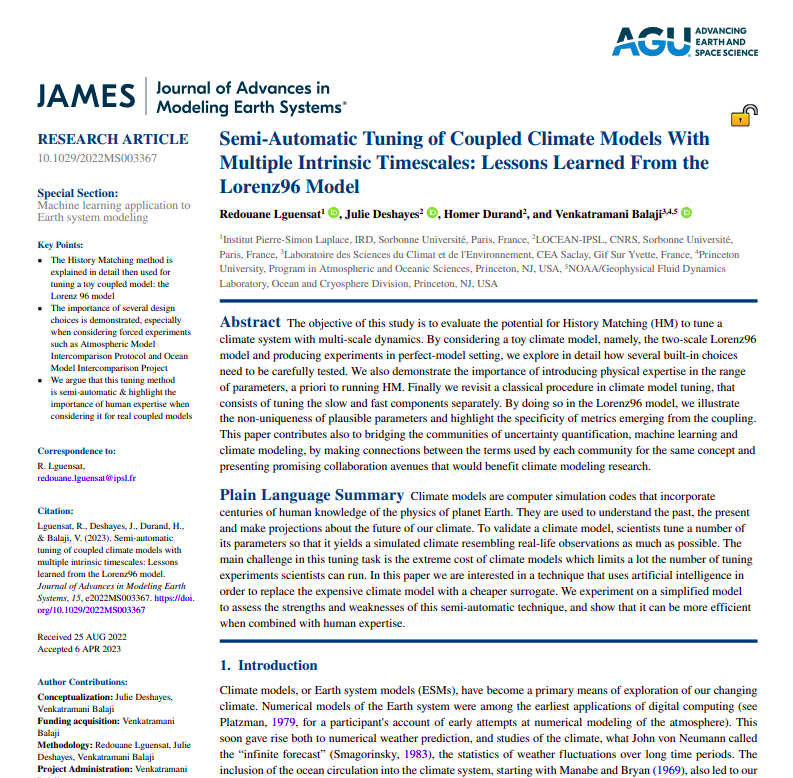PhD student researcher
-
ISP-IPL lab
november 2022 - present
Currently doing my PhD thesis in Remote Sensing at Universitat de València and working as a researcher at the Image Processing Lab in the Image and Signal Processing group. My work focus on developping Machine Learning methods based on causality, kernel methods and dimensionality reduction for the Detection and Attribution of Climate Change.
I worked as an intern researcher at Image Processing Lab (IPL) in the Image and Signal Processing (ISP) group. My research topic was Causal Representation Lerning for Earth System Modelling.
I worked as an intern researcher at Pierre Simon Laplace institute in the LOCEAN group. My research topic was Dynamical model calibration with History Matching methodology using Gaussian Process, Random Forest and Bayesian Neural Network regressions. I mainly worked on assessing wether machine learning algorithms could replace the Gaussian Processes used in History Matching, a parametrization methodology for simulation models.
Intern Software Developer
-
Kyntus
Jul 2019 - Aug 2019
I worked on the development of a web app for schedules and projects management using PHP, SQL and HTML.






